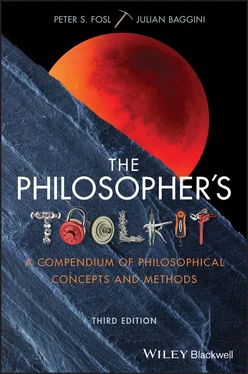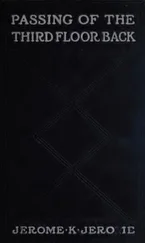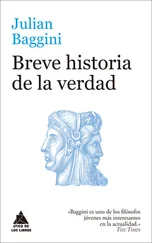1 1.5 Invalidity
2 3.11 Conversion, contraposition, obversion
3 4.5 Conditional/biconditional
* S. Morris Engel (1974). With Good Reason: An Introduction to Informal Fallacies
* Irving M. Copi (1986). Informal Fallacies
* H. V. Hansen and R. C. Pinto (1995). Fallacies: Classical and Contemporary Readings
Scott G. Schreiber (2003). Aristotle on False Reasoning
* Julian Baggini (2006). The Duck that Won the Lottery
Samuel Johnson was not impressed by Bishop George Berkeley’s argument that material substance does not exist. In his Life of Johnson (1791) James Boswell reported that, when discussing Berkeley’s theory with him, Johnson once kicked a stone with some force and said, ‘I refute it thus.’
Any great person is allowed one moment of idiocy to go public, and Johnson’s attempt at a refutation must be counted as just such a moment, because he wildly missed Berkeley’s point. The bishop would never have denied that one could kick a stone; he denied that stones properly understood can be conceived to be material substances. But Johnson’s refutation also failed even to be a true refutation , a concept that in philosophy has a precise meaning.
To refute an argument is to show that its reasoning is bad. If you, however, merely register your disagreement with an argument, you are not refuting it – even though in everyday speech people often talk about refuting a claim in just this way. So, how can one really refute an argument?
There are two basic ways of doing this, both of which are covered in more detail elsewhere in this book. First, you can show that the argument is invalid: the conclusion does not follow from the premises as claimed (see 1.5). Or, second, you can show that one or more of the premises are false (see 1.4).
There is a third method of refutation, too – or at least quasi‐refutation. All you have to do is simply show that the conclusion must be false . From this it can be argued that therefore, even if you can’t identify exactly what is wrong with the argument, something must be wrong with it (see 3.25). This last method, however, isn’t strictly speaking a refutation, since one has failed to show what is wrong with the argument, only that it must be wrong. Nevertheless, this understanding that something must be wrong often accomplishes all that’s needed.
Refutations are powerful tools, but it would be rash to conclude that in order to reject an argument only a refutation will do. You may be justified in rejecting an argument even if you have not strictly speaking refuted it. You may not be able to show that a key premise is false, for example, but you may believe that it’s inadequately justified. An argument based on the premise that ‘there is intelligent life elsewhere in our universe’ would fit this model. We can’t show that the premise is actually false, but we can argue that we have both no good reasons for believing it to be true and some grounds for supposing it to be false. Therefore, we can regard any argument that depends on this premise as rather dubious and permissibly ignore it.
More contentiously, you might also reject an argument by arguing that it utilises a concept inappropriately. This sort of problem is particularly clear in cases where a vague concept is used as if it were precise. For instance, consider the claim that the government is obliged to provide assistance only to those who do not have enough to live on properly. But given that there can be no precise formulation of what ‘enough to live on properly’ means, any argument must be inadequate that concludes by making a sharp distinction between those who have enough in this sense and those who don’t. The logic of the argument may be impeccable and the premises may appear to be true. But if you use vague concepts in precise arguments you may well end up with distortions.
There are many more ways of legitimately objecting to an argument without actually refuting it. The important thing is to keep in mind the difference between refutation and other forms of objection and to be clear about what form of objection you’re offering.
1 1.4 Validity and soundness
2 1.5 Invalidity
3 3.4 Bivalence and the excluded middle
Imre Lakatos (1976/2015). Proofs and Refutations
Karl Popper (1963). Conjectures and Refutations
* Jamie Whyte (2005). Crimes Against Logic
* Julian Baggini (2008). The Duck That Won the Lottery and 99 Other Bad Arguments
* T. Schick, Jr, and L. Vaughn (2020). How to Think about Weird Things, 8th edn
Obtaining a guaranteed true conclusion in a deductive argument requires that the argument be sound – that is, it requires both (1) that the argument be valid and (2) that the premises be true (1.4). Unfortunately, the procedure for deciding whether or not a premise is true is much less determinate than the procedure for assessing an argument’s validity. Unless premises are to be justified by arguments whose own premises are to be justified by still other arguments ad infinitum , and unless premises are to circle back on themselves in a loop of justification, there must be a stopping point where fundamental or basic premises are just accepted as true (see Agrippa’s trilemma in 1.1).
For this reason, the concept of an axiom becomes a useful philosophical tool. An axiom is a proposition that acts as a special kind of premise in a specific kind of rational system. Axiomatic systems were first formalised by the Alexandrian geometer Euclid (fl. 300 BCE) in his famous work the Elements . In these kinds of systems, axioms function as initial, anchoring claims that stand in no need of justification – at least from within the system. They are the bedrock of the theoretical system, the basis from which, through various steps of deductive reasoning, the rest of the system is derived. In ideal circumstances, an axiom should be such that no rational agent could possibly object to its use.
Axiomatic vs natural systems of deduction
It is important to understand, however, that not all conceptual systems are axiomatic – not even all rational systems. For example, some deductive systems try simply to replicate and refine the procedures of reasoning that seem to have unreflectively or naturally developed among humans. This type of system is called a natural system of deduction; it doesn’t posit any axioms but looks instead for its formulae to the practices of ordinary rationality.
As we have defined them, axioms would seem to be pretty powerful premises. Once, however, you consider the types of axiom that there are, their power seems to be somewhat diminished. One type of axiom comprises premises that are true by definition. Perhaps because so few great philosophers have been married, the example of ‘all bachelors are unmarried men’ is usually offered as the paradigmatic example of definitional truths. The problem is that no argument is going to be able to run very far with such an axiom. Axioms of this sort are purely tautological, that is to say, ‘unmarried men’ merely restates in different words the meaning that is already contained in ‘bachelor’. (This sort of proposition is sometimes called – following Immanuel Kant – an ‘analytic’ proposition. See 4.3.) They are therefore spectacularly uninformative sentences (except to someone who doesn’t know what ‘bachelor’ means). So, they are unlikely to help yield informative conclusions in an argument.
Читать дальше












